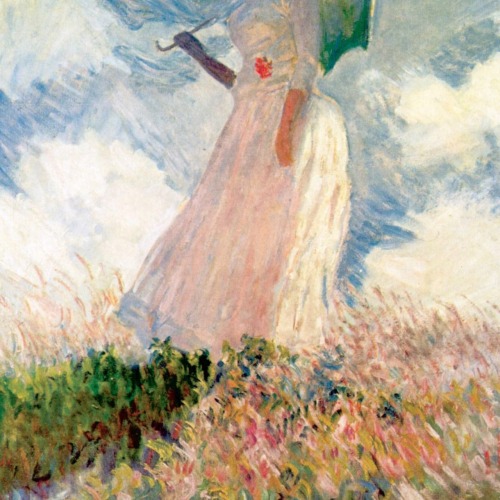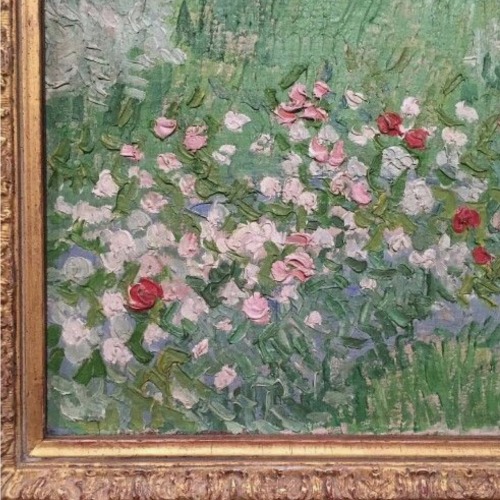Theblogofwildfellhall









More Posts from Theblogofwildfellhall and Others
Music Tag
I’m a little late! I was tagged by @cactii-studies. Thanks for tagging me!
rules: put your 🎶 library on shuffle, list the first 10 songs and tag people
Those Days by Lindsey Stirling
Take Flight by Lindsey Stirling
Valse Sentimale by Tchaikovsky
Breathe Today by Flyleaf
Am I Supposed to Apologize by Maria Mena
Good Feeling by Flo Rida
Good for you by Selena Gomez
Prism by Lindsey Stirling
Bloody Mary by Lady Gaga
Believer by Imagine Dragons
I'm surprised Lindsey Stirling didn't show up more, tbh.
I tag no one.
neurodivergents tag all the special interests/hyperfixations u went through this year
This or That
Thanks to @cactii-studies for tagging me!
honey and lemon or milk and sugar // musicals or plays // lemonade or iced tea // strawberries or raspberries // winter or summer // beaches or forest // pastels or neons // diners or cafés // unicorns or dragons// gemstones or crystals // humming birds or owls // fireworks or sparklers // brunch or happy hour // sweet or sour // rome or amsterdam // classic or modern art // sushi or ramen // sun or moon // polka dots or stripes // macarons or croissants // glitter or matte // degas or seurat // aquariums or planetariums// road trip or camping trip // colouring books or watercolour // fairy lights or candles
“Fairy tales are more than moral lessons and time capsules for cultural commentary; they are natural law. The child raised on folklore will quickly learn the rules of crossroads and lakes, mirrors and mushroom rings. They’ll never eat or drink of a strange harvest or insult an old woman or fritter away their name as though there’s no power in it. They’ll never underestimate the youngest son or touch anyone’s hairpin or rosebush or bed without asking, and their steps through the woods will be light and unpresumptuous. Little ones who seek out fairy tales are taught to be shrewd and courteous citizens of the seen world, just in case the unseen one ever bleeds over.”
— S.T. Gibson (via sarahtaylorgibson)
Le Passé Composé - Masterpost
The passé composé is the most commonly used past tense in French.
It is formed using the following formula:
subject + avoir or être (conjugated in the present tense) + past participle
Conjugating avoir and être
In the present tense, avoir (to have) is conjugated as follows:
je - ai ¹ | nous - avons
tu - as | vous - avez
il/elle/on - a | ils/elles - ont ²
In the present tense, être (to be) is conjugated as follows:
je - suis | nous - sommes
tu - es | vous - êtes
il/elle/on - est | ils/elles - sont
Forming the past participle
For regular -er verbs, drop -er and add -é (parler → parlé)
For regular -re verbs, drop -re and add -u (vendre → vendu)
For regular -ir verbs , drop -ir and add -i (finir → fini)
Forms of past participles:
Nearly all past participles use the following endings to indicate gender and number:
__Masculine__|__Feminine____
Singular | é / u / i | ée / ue / ie
Plural | és / us / is | ées / ues / ies
Common irregular past participles:
être (to be) → été
faire (to do, make) → fait ³
offrir (to offer) → offert ³
ouvrir (to open) → ouvert ³
naître (to be born) → né
mourir (to die) → mort ³
avoir (to have) → eu
boire (to drink) → bu
connaître (to know) → connu
coire (to believe) → cru
devoir (must; to owe) → dû
lire (to read) → lu
pleuvoir (to rain) → plu
pouvoir (can; to be able to) → pu
recevoir (to receive) → reçu
savoir (to know) → su
voir (to see) → vu
vouloir (to want) → voulu
venir (to come) → venu
mettre (to place) → mis ³
prendre (to take) → pris ³
conduire (to drive) → conduit ³
dire (to say)→ dit ³
écrire (to write) → écrit ³
asseoir (to sit down) → assis ³
Irregular verbs formed from other irregular verbs use the same base for their past participles:
mettre → mis; permettre (to permit, allow) → permis
ouvrir → ouvert; couvrir (to cover) → couvert
When to use avoir or être
The majority of French verbs use avoir in the passé composé. Default to avoir, barring the following exceptions:
The following verbs usually use être as its auxilary verb ⁴ in the passé composé. They often have to do motion, but not all verbs of motion use être . They therefore must be memorized.
aller - to go
arriver - to arrive
descendre ⁵ - to descend / go downstairs
entrer ⁵ - to enter
monter ⁵ - to climb
mourir - to die
naître ⁵ - to be born
partir ⁵ - to leave
passer - to pass
rester - to stay
retourner - to return
sortir ⁵ - to go out
tomber ⁵ - to fall
venir ⁶ - to come
All pronominal verbs, without exception, use être in the passé composé.
Agreement in the passé composé
Agreement with avoir
The past participle normally agrees in gender and number with the direct object (or direct object pronoun) if it precedes the verb, barring the exceptions that follow.
J’ai lu les lettres. (I read the letters.)
Je les ai lues. (I read them.)
J’ai ouvert les lettres. (I opened the letters.)
Les lettres qui j’ai ouvertes sont lá-bas. (The letters that I opened are over there.)
Exceptionally, the past participle does not have to agree with the direct object in causative constructions or with certain constructions with verbs of perception ⁷.
Je les a fait lire les lettres. (I made them read the letters.)
Les lettres que j’ai vu écrire. (I saw the letters get written.)
Agreement with être
The past participle must always agree with the subject with non-pronominal verbs that use être.
Elle est allée à la poste pour déposer les lettres. (She went to the post office to drop off the letters.)
Vous êtes parties de la poste avec les lettres. (You (f.pl.) left the post office with the letters.)
The past participle must agree with the reflexive pronoun of pronominal verbs when the reflexive pronoun is the direct object. It does not agree with the indirect object.
Elle s’est asisse à son bureau quand elle lisait la lettre. (She sat herself down at her desk when she was reading the letter.
Nous nous sommes envoyés des lettres. (We sent each other letters.)
Negating in the passé composé
Add the standard ne… pas construction around avoir or être, excluding the subject and past participle. Include objective and adverbial pronouns that precede the auxiliary verb ⁸. When using inversion, include the subject and the verb between the negative constructions.
Je n’ai pas écrit ces lettres (I did not write those letters.)
Je ne les ai pas écrits ces lettres. (I did not write them.)
Je ne suis pas allé à la poste pour déposer les lettres. (I did not go to the post office to drop off the letters.)
Je n’y suis pas allé. (I did not go there.)
N’êtes-vous pas retournés de la poste ? (Did you return from the post office?)
Questioning in the passé composé
Questions are formed in the passé composé using the inversion or est-ce que constructions.
Avez-vous déja écrit les lettres ? (Do you write the letters yet?)
Est-ce qu’ils sont allés à la poste ? (Did they go to the post office?)
Pourquoi n’avez-vous pas envoyé les lettres ? (Why did you not send the letters?)
Questions can be asked informally using standard SVO word order with a question tone at the end of the sentence.
Tu as déja envoyé les lettres ? (You sent the letters already?)
Translating the passé composé
The passé composé can be translated as [verb + ed], [to have + past participle] or [did / do + verb].
J’ai écrit les lettres. (I wrote / have written / did write the letters.)
¹ je and ai are elided as j’ai.
² Be sure to liaise the s and o to distinguish it from sont, the third person plural form of être.
³ These verbs use irregular past participle forms to indicate gender and number:
Fait, ouvert, offert, conduit, écrit, dit, and mort use the following:
_______|__Masculine__|__Feminine__
Singular | ∅ | e
Plural | s | es
Mis, pris, and assis use the following:
_______|__Masculine__|__Feminine__
Singular | ∅ | e
Plural | ∅ | es
⁴ when used intransitively. When they take a direct object, they use avoir instead.
⁵ These verbs can add re- to make verbs that indicate that the action was repeated; these derivatives use être as well.
⁶ venir has the following derivatives: devenir (to become), parvenir (to reach, achieve), and revenir (to come again, come back); these use être as well.
⁷ The six verbs of perception are apercevoir (to catch a glimpse of), écouter (to listen) entendre (to hear), regarder (to watch), sentir (to feel), and voir (to see); the past participle never agrees with the direct object of the infinitive; the past participle agrees with the subject of the infinitive when it precedes the verb.
⁸ Objective and adverbial pronouns precede the auxiliary verb and succeed the subject.
-
 magicartist15 liked this · 8 months ago
magicartist15 liked this · 8 months ago -
 bby9bear reblogged this · 9 months ago
bby9bear reblogged this · 9 months ago -
 darkacademia7 reblogged this · 9 months ago
darkacademia7 reblogged this · 9 months ago -
 nihalreading liked this · 10 months ago
nihalreading liked this · 10 months ago -
 sirikenobilegends liked this · 10 months ago
sirikenobilegends liked this · 10 months ago -
 pchuaymee liked this · 2 years ago
pchuaymee liked this · 2 years ago -
 meissama liked this · 2 years ago
meissama liked this · 2 years ago -
 osweetpeao liked this · 2 years ago
osweetpeao liked this · 2 years ago -
 sokaktakikedilerinannesii liked this · 2 years ago
sokaktakikedilerinannesii liked this · 2 years ago -
 suburbansuns reblogged this · 2 years ago
suburbansuns reblogged this · 2 years ago -
 anemonebythesea liked this · 2 years ago
anemonebythesea liked this · 2 years ago -
 darkartcademia reblogged this · 2 years ago
darkartcademia reblogged this · 2 years ago -
 vajmeh liked this · 2 years ago
vajmeh liked this · 2 years ago -
 catsbookscoffeeandlove reblogged this · 2 years ago
catsbookscoffeeandlove reblogged this · 2 years ago -
 buffyansummers liked this · 2 years ago
buffyansummers liked this · 2 years ago -
 arianaisboredsmh liked this · 3 years ago
arianaisboredsmh liked this · 3 years ago -
 themetesterfromhell reblogged this · 3 years ago
themetesterfromhell reblogged this · 3 years ago -
 moonsnsaturn liked this · 3 years ago
moonsnsaturn liked this · 3 years ago -
 mybelamoon liked this · 3 years ago
mybelamoon liked this · 3 years ago -
 juanzitoz liked this · 3 years ago
juanzitoz liked this · 3 years ago -
 ningzya liked this · 3 years ago
ningzya liked this · 3 years ago -
 meiliariotz reblogged this · 3 years ago
meiliariotz reblogged this · 3 years ago -
 theserandomcharacters reblogged this · 3 years ago
theserandomcharacters reblogged this · 3 years ago -
 galaxypkj reblogged this · 3 years ago
galaxypkj reblogged this · 3 years ago -
 devillskettle reblogged this · 3 years ago
devillskettle reblogged this · 3 years ago -
 senliiller liked this · 3 years ago
senliiller liked this · 3 years ago -
 lesboeimiko liked this · 3 years ago
lesboeimiko liked this · 3 years ago -
 lu5pin liked this · 3 years ago
lu5pin liked this · 3 years ago -
 k-ennyz reblogged this · 3 years ago
k-ennyz reblogged this · 3 years ago -
 lowkev liked this · 3 years ago
lowkev liked this · 3 years ago -
 ramen01 liked this · 3 years ago
ramen01 liked this · 3 years ago -
 importantghostthingathlete liked this · 3 years ago
importantghostthingathlete liked this · 3 years ago -
 hephapgods reblogged this · 3 years ago
hephapgods reblogged this · 3 years ago -
 one-hell-of-otaku-is-here liked this · 3 years ago
one-hell-of-otaku-is-here liked this · 3 years ago -
 itsyeojinsoul reblogged this · 3 years ago
itsyeojinsoul reblogged this · 3 years ago -
 gaabwqxy liked this · 3 years ago
gaabwqxy liked this · 3 years ago -
 soolmaz2001 liked this · 3 years ago
soolmaz2001 liked this · 3 years ago -
 jileystuff reblogged this · 3 years ago
jileystuff reblogged this · 3 years ago -
 elbisreverri liked this · 3 years ago
elbisreverri liked this · 3 years ago -
 heemeowing liked this · 3 years ago
heemeowing liked this · 3 years ago
Emma. 27. A blog for Classic Literature, language learning, flowers, and aesthetic
117 posts













